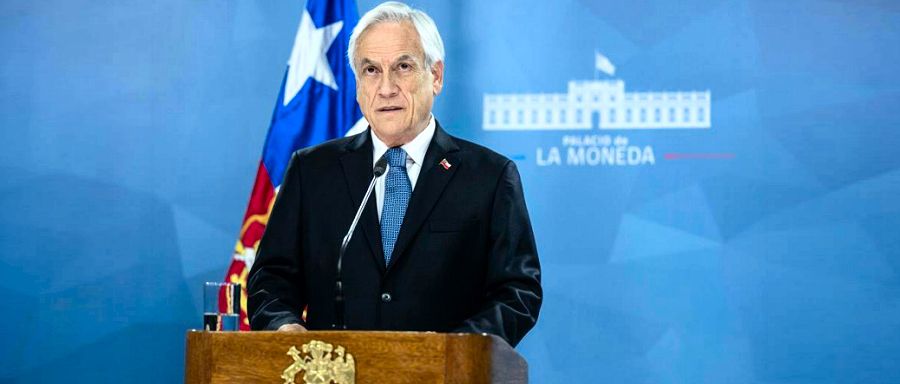THE CHILEAN PRESIDENT RECULATED
BEFORE THE PRESSURE OF THE STREET |
|
When he spoke of a country "at war with a powerful enemy" earlier this week, Chilean President Sebastian Piñera finally poured water into his wine in the face of social protest that left 15 dead in the country . He opted for a radical change of tone: "We have not been able to recognize the extent of this situation of inequality and abuse. I beg your pardon for this lack of vision, "admitted the president on the right. 
The leader of the right has mostly taken a social turn: 20% increase in the lowest pensions, revaluation of the minimum wage, lower salaries of parliamentarians, freeze the price of electricity, lower the price of drugs, increase of Taxes for the richest ... Mr. Piñera, who had gathered several presidents of political parties on Tuesday, has carried out a long series of measures that will be submitted to the vote of the Congress or approved by presidential decree. "This social agenda will not solve all the problems plaguing Chileans, but it is a necessary and significant effort to improve the quality of life of the most vulnerable," said the head of state. But for Alberto Mayol, deputy dean of the faculty of administration and economics of the University of Santiago, "what is fundamental in the events of the last days is the failure of the current economic model. And none of the measures announced by the President comes out of this model. Announcements that may not prevent the continuation of mobilization in this country of 18 million inhabitants with glaring inequalities. The Unitary Workers' Confederation (CUT), the largest trade union confederation in the country, and 18 other organizations have called for strikes and demonstrations on Wednesday and Thursday in Santiago. Public health unions also announced for the week a strike and protest actions before the Ministry of Health. Call that is likely to be followed . Nearly 20,000 police and soldiers are still deployed in Chilean territory where the state of emergency is in force in the capital and nine of the sixteen regions. This is the first time that soldiers have been patrolling the streets since the end of the dictatorship of General Augusto Pinochet (1973-1990). |
|
| Garett Skyport for DayNewsWorld | |
 |
|



